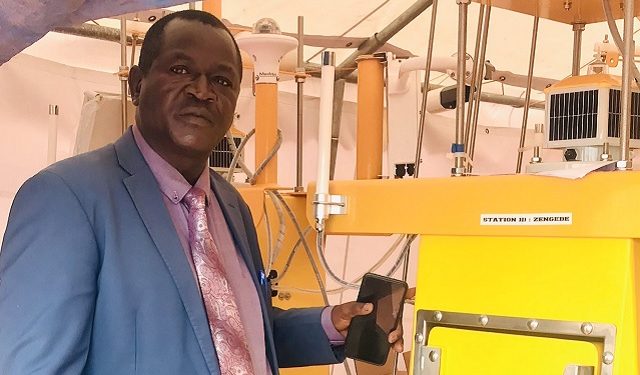By THE INDEPENDENT UG
Kampala, Uganda | THE INDEPENDENT |
After a five-day reflection on water resources and the environment, coinciding with International Meteorological Day, the Uganda National Meteorological Authority (UNMA) has appealed to the government to provide the necessary equipment for its operations instead of considering rationalization.
UNMA is one of the statutory agencies that the government intends to rationalize to reduce expenditures and eliminate duplication of services among MDAs. Among its functions, UNMA is mandated to facilitate rapid weather information exchange, establish observation networks, operate advanced forecasting centers, and provide meteorological services to various sectors including aviation, marine transport, agriculture, health, national defense, disaster preparedness, and development activities.
“For your information, UNMA was the first body to be agentized in the region; our threat today is the merger. If you follow the trend of the Department of Meteorology and UNMA, we performed very well in 2015. Our main worry is the merger has made the staff lose morale, and it would be unfortunate and regrettable for us to be the first in the region to lose our agentization status,” said Julius Kiprop, the UNMA manager of Networks Operations, at the closing of the water and environment week 2024.
Kiprop highlighted UNMA’s extensive mandate, including the goal of having a presence in every district in the country to improve the quality of the information they provide. However, this goal remains unattainable due to a lack of infrastructure. “We are supposed to be in every district, but we have only covered 69 percent of the 146 districts due to inadequate infrastructure,” he added. He emphasized that with the necessary equipment, the agency could operate more effectively and be less costly to the government.
In the wrap-up of the Water and Environment Week’s events, Callist Tindimugaya, the commissioner for Water Resources Management and Planning in the Ministry of Water and Environment, highlighted the week’s theme, “Rethinking Collective Action and Innovative Solutions to Water, Environment, and Climate Change Crisis.” He emphasized that the theme aimed to challenge individuals to reconsider their relationship with the environment and develop innovative approaches to address the climate change agenda.
Tindimugaya highlighted that discussions during the week underscored the importance of collective action in addressing the water, environment, and climate change crisis. Other key issues included the need to expand funding for these sectors to include banking and insurance products as alternatives to traditional funding mechanisms. Additionally, efforts to reduce water wastage to increase water supply coverage and address water contamination due to uncontrolled urbanization were highlighted.
“It was noted that we are losing as much as 40 percent of water, and if we can reduce this to maybe 20 percent, it means water supply coverage can increase, using the same water and the same money, thereby reducing the burden on the government to invest more money. There is also a need to solve the highly contaminated waters due to uncontrolled urbanization,” he said.
The meetings also emphasized the importance of sector players becoming more action-oriented and turning challenges into opportunities. There was also a call to collaborate with religious and cultural institutions to amplify the message further.
URN







Discussion about this post